-
Featured Items
-
Featured Resources
 Funding & Grants
Don't miss out on funding opportunities. Stay informed with our up to date online listings and email notifications.
Read More
Funding & Grants
Don't miss out on funding opportunities. Stay informed with our up to date online listings and email notifications.
Read More
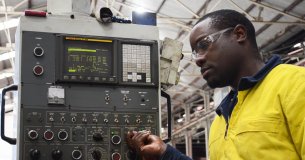 Skilled Migration
Our services help both applicants and employers, to learn more, develop plans, submit applications, and settle in.
Read More
Skilled Migration
Our services help both applicants and employers, to learn more, develop plans, submit applications, and settle in.
Read More
 Research and Analysis
Good research and analysis makes the case. How can our resources and services help your project or application?
Read More
Research and Analysis
Good research and analysis makes the case. How can our resources and services help your project or application?
Read More
 Information & Data Resources
With resources like REMPLAN, Regional Knowledge Base, and decades of data, discover how we can help your project.
Read More
Information & Data Resources
With resources like REMPLAN, Regional Knowledge Base, and decades of data, discover how we can help your project.
Read More
-
Stay InformedSubscribe to one or more of our regular email subscriptions, to be kept up to date on news and funding opportunities for the region
-
-
Our Region
- Our Region
- Regional Plan
- Regional Data
- Current Regional Issues
- Population Migration Analysis for 2016-21
- Job Vacancies Continue at All-Time High
- National Debt - What it Means for Our Economy?
- The True Value of Home Solar
- The Economic Impacts of Local Government Amalgamations
- State of the Regions Report 2014-15
- Antifragility - A different take on regional economic development
- Biohubs - Collaborative Waste Management
- Attracting New Residents
- Socio-Economic Impacts of the Murray Darling Basin Plan
- Murray Darling Basin Water Recovery
- Growing Businesses
- The Northern Inland Economy
- Geographical Overview
- Major Industry Sections
- Our Services
- Grants and Funding
-
Skilled Migration
- Skilled Migration
- Skilled Employer Sponsored Regional Visa
- Skilled Work Regional Visa (subclass 491)
- Temporary Seasonal Workers
- Designated Area Migration Agreement (DAMA)
- Helpful Information for Visa Holders
- Information for Employers
- Case Studies
- Payment Details
- Advice & Further Information
- Contact Details
- News & Events
-
Our Projects
- Our Projects
- Current Projects
- The Welcome Experience
- Come On Inland
- Wool Works - Wool Training Schools
- Skilled Migration
- Metal Works - Welding and Fabrication Schools
- Stories of Resilience
- Alt Brothers Beekeeping - Glen Innes
- Carelle's Toy Store - Glen Innes
- Greenhill Orchards - Arding
- Gwydir Meats - Warialda
- Kaputar Motors - Narrabri
- Moonbi General Store - Moonbi
- Sandstock - Tingha
- Sherelle Fashions - Tenterfield
- Sleepy Merino - Inverell
- Tenterfield Chamber of Toursim, Industry and Business - Tenterfeild
- The Welders Dog - Armidale
- Walcha Veterinary Supplies - Walcha
- AGCAP - Agribusiness Careers & Professions
- Northern Inland Regional Investment Profile
- Past Projects
- Digital Economy Strategy
- Business Growth Project
- Go Digital
- How to Start an Online Business
- Create Your Website Using Squarespace
- How to Edit Your Squarespace Site - Part 1
- How to Edit Your Squarespace Site Part 2
- Add a Shop to Your Squarespace Site
- Start a Blog and Find out What Customers are Searching
- 14 Tips For a Better Blog Post
- Which Social Media Platforms are Best for Your Business
- How to Use Facebook Effectively For Your Business – Part 1
- How to Use Facebook Effectively For Your Business – Part 2
- Instagram Tips for Business
- Catching Up, More Instagram & Dealing with Haters
- Getting Started with Twitter for Business
- Social Media Scheduling Tools
- How to Start an Etsy Shop – Part 1 – Research
- How to Start an Etsy Shop – Part 2 – Signup
- Online Security for Your Business
- Product Photography and Website Images: Your Guide
- 5 Tips to Improve your Productivity in your Business
- Best Online Business Resources
- How to Improve Your Communication Skills and Win More Clients
- NBN Coordinator
- Putting Power Back in the Regions
- Road Freight Study
- Town Audit Benchmarks
- Food and Wine
- Youth Survey
- Digital TV Switchover Assistance
- Northern Inland Transport Guide
- Live.Train.Work
- Northern Inland Innovation Awards
- Northern Inland Innovation Awards - 2017
- Northern Inland Innovation Awards - 2016
- Northern Inland Innovation Awards - 2015
- Northern Inland Innovation Awards - 2014
- Northern Inland Innovation Awards - 2013
- Northern Inland Innovation Awards - 2012
- Norther Inland Innovation Awards - 2011
- Prime Super Northern Inland Innovation Awards - 2010
- Prime Super Northern Inland Innovation Awards - 2009
- Northern Inland Innovation Awards - 2007
- Northern Lights Project
- NBN Smart Home
- Murray Darling Basin
- Moree Plains Business Workshops
- Namoi Investment Prospectus
- Industrial Land
- Bioenergy and Local Electricity Retailing
- Northern Inland Business Energy Assessment
- Skills for the Future
- Impacts of COVID-19 on Businesses
- Past Projects of NIRDB
- Aboriginal Employment and Enterprise in the Gunnedah Region
- Art as an Industry
- Aviation Survey
- Farm Forestry - Northern Inland Forestry Investment Group
- New England North West Film Strategy
- Northern Inland Excellence in Business Awards
- Food and Wine 2003 - 2008
- Prime Super Northern Inland Innovation Awards 2009
- Regional Business Networking Program
- Regional Leadership Course 2008
- Viticulture Strategy 2002-2003
- About Us
- Contact Us
- Other Resources
- Privacy and Legal
- Search
- News & EventsNews & Events
- NewslettersNewsletters
- General Newsletter - 20th of September 2022General Newsletter -…
Back to Newsletters
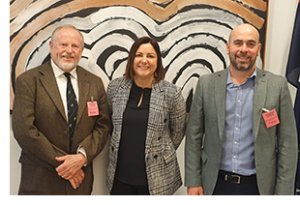
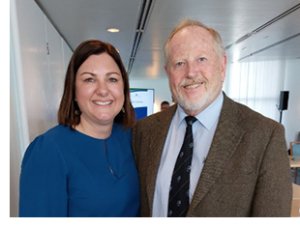
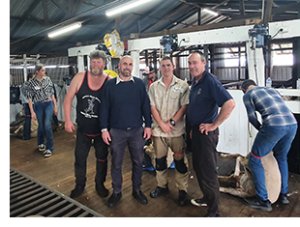
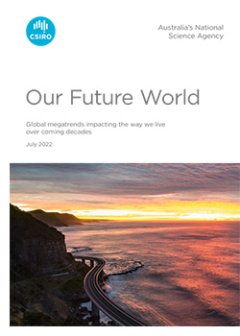
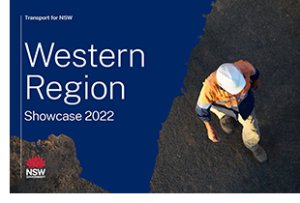

General Newsletter - 20th of September 2022
Tuesday 20th of September 2022
In this Issue
- Welcome from the Chair
- Regional Skill Shortages Discussed at National Roundtable
- Shearing School Continues to Inspire
- Jobs and Skills Summit Results in Immediate Actions
- Wealth of Opportunities in Global Megatrends
- Be Part of Upcoming Transport Infrastructure
- New Application Process for 491 Visa
- Featured Grants and Funding Opportunities
Welcome from the Chair

Dear Northern Inlanders,
The recent passing of her majesty Queen Elizabeth II has created mixed emotions for many. Perhaps a key takeaway from her life and legacy is to reflect on how we live our lives and consider how every one of us will impact the future of those around us. Through our everyday actions, we can work together to make our communities a brilliant place to live for everyone, irrespective of our differences, backgrounds, and perspectives.
Last month, I was pleased to be part of a roundtable that discussed the challenges our regional industries face in attracting and retaining skilled workers. This is an important issue, and I am reassured that the Australian Government is taking it seriously and ensuring regional voices were heard ahead of the Australian Government Jobs Summit. The National Summit was an opportunity to look to the future and make a change for the better. To make a positive change in what is an important issue in our region, Government, industry, and not-for-profits such as ours need to work together.
I had the opportunity to meet with Minister McBain again in Canberra along with our Executive Director, Nathan Axelsson, to talk about the role of RDAs across Australia and how the Australian Government can support the future growth and prosperity of Regional Australia. I was particularly proud to present her with the rather long list of the great initiatives from our communities that our staff have been able to support through our consultancy, grant writing and data analysis services. Our communities’ ideas, combined with the unique skills of our staff, have resulted in over $62 Million of grants for projects across our region, making it an even better place to live.
Regards,
Russell Stewart
Chair
Regional Skill Shortages Discussed at National Roundtable

In preparation for the Jobs and Skills Summit, our Chair, Russell Stewart, was part of the roundtable led by Minister for Regional Development, Local Government and Territories, Kristy McBain last month.
This meeting included representatives from the Regional Development Australia (RDA) network and peak bodies from the local government sector to discuss the challenges regional industries face in attracting and retaining skilled workers to inform the Jobs Summit. Skills shortages, housing supply, and how to retain and attract diverse and talented workers to regional areas were just some topics explored across the roundtables.
Minister McBain also met with this year’s Rural Youth Ambassadors and spoke about barriers and opportunities in ensuring young people have the skills required to fill essential roles in our regional communities both now and into the future.
“The Jobs and Skills Summit is about addressing significant staff shortages and building better-trained, more productive workforces. Each part of Australia has unique challenges, but there are some key themes that occur right across the board and it’s these issues that the Jobs and Skills Summit needs to address.” said Minister McBain. “Living in a regional area, I see every day how staff shortages are affecting our communities. Whether it’s hospitality businesses closing their doors early, huge waitlists to get a tradie on a work site, delays in planning and development approvals or hundreds of job advertisements going unanswered, our regional communities are struggling with the lack of skilled staff.”
“I’m working hard to hear from as many organisations and stakeholders as possible. I’ve specifically sought information from young rural Australians because often we talk about barriers to employment and training without actually listening to the young people who are tackling these issues every day. Regional and rural young people have fantastic ideas and they’re extremely innovative so I’m keen to tap into their collective knowledge and experience and give them a clear opportunity to contribute to the Jobs and Skills Summit. These roundtable discussions are an important part of making sure the voices of regional and rural communities and the local government sector are heard at the Summit.”
Shearing School Continues to Inspire

‘Lauriston’ near Inverell was the location of our latest three-day Shearing School this month. Attended by twenty-five enthusiastic high school students from Inverell’s Macintyre High School and Holy Trinity Catholic School, as well as Warialda High School and Ashford Central School, this initiative works to encourage students to consider a career in the industry.
Running since 2019, our Shearing Schools are designed to give high school students a taste of wool shearing and handling skills through hands-on experience. Every participant who might go on to further shearing training is a big win as the skills shortage in the wool industry is a concern.
Jointly funded by Training Services NSW and RDANI, Wool Works was delivered, thanks to contributions from an array of individuals and organisations committed to the industry, including veteran shearers and wool handlers. Our trainers have many years of experience in the wool industry, shearing, wool handling and training. They were able to convey a great deal in a matter of days due to the practical approaches in our shearing schools.
Our rural employers are crying out for skilled workers and our teenagers are not always aware of the rewarding, well-paying jobs and training options that are out there. We are in contact with stakeholders, woolgrowers, and shearers who have praised the benefits of the Shearing Schools.
Martin Bower has been a Careers Advisor at Warialda High School for 28 years and a teacher there for 32. He is passionate about the wool industry and the role skilled workers within it have played in Australia’s economic development. Mr. Bower was delighted with the Wool Works Shearing School and applauded the opportunity it represented for his students.
“Shearing is a really good trade for young people to get into. For those who don’t click with school, this shearing school presented a really good example of what they can do. They don’t have to go off to university, they can do something physically rewarding that can be good money and is a respectable field,” he said. “Wool Works gives kids an opportunity to see and experience a highly skilled job. Doing something rewarding like that can be transformational, especially for those who might not be academically orientated. Learning a skill and doing it well can give them pride in themselves,” Mr. Bower said.
With the generous support from Training Services NSW, further Shearing Schools are planned for 2022 and 2023. Northern Inland Schools and students can register their interest in participating in the program by contacting our office at rdani@rdani.org.au or on 6771 0700.
Jobs and Skills Summit Results in Immediate Actions
At the beginning of this month, the Prime Minister and Treasurer lead the Jobs and Skills Summit in Canberra. The summit consulted with government ministers, industry, unions and other stakeholders to cover a range of topics, including:
- Keeping unemployment low, boosting productivity and raising incomes.
- Delivering secure, well‑paid jobs and strong, sustainable wages growth.
- Expanding employment opportunities for all Australians including the most disadvantaged.
- Addressing skills shortages and getting our skills mix right over the long‑term.
- Improving migration settings to support higher productivity and wages.
- Maximising jobs and opportunities from renewable energy, tackling climate change, the digital economy, the care economy and a Future Made in Australia.
- Ensuring women have equal opportunities and equal pay.
Working with industry, unions and other stakeholders at the Summit, the Australian Government has agreed to 36 immediate initiatives including:
- An additional $1 billion in joint Federal-State funding for fee-free TAFE in 2023 and accelerated delivery of 465,000 fee-free TAFE places;
- A one-off income credit so that Age Pensioners who want to work can earn an additional $4,000 over this financial year without losing any of their pension;
- More flexibly utilising $575 million in the National Housing Infrastructure Facility to invest in social and affordable housing, and attract financing from superannuation funds and other sources of private capital;
- Modernising Australia’s workplace relations laws, including to make bargaining accessible for all workers and businesses;
- Amending the Fair Work Act to strengthen access to flexible working arrangements, make unpaid parental leave more flexible and strengthen protection for workers against discrimination and harassment;
- Improving access to jobs and training pathways for women, First Nations people, regional Australians and culturally and linguistically diverse people, including equity targets for training places, 1,000 digital apprenticeships in the Australian Public Service, and other measures to reduce barriers to employment;
- An increase in the permanent Migration Program ceiling to 195,000 in 2022-23 to help ease widespread, critical workforce shortages; and
- Extending visas and relaxing work restrictions on international students to strengthen the pipeline of skilled labour, and providing additional funding to resolve the visa backlog
The themes and outcomes of the summit, along with consultation with the wider community, will inform the Employment White Paper, which will help to shape the future of Australia’s labour market.
Wealth of Opportunities in Global Megatrends

Every ten years, the CSIRO produces a report on global megatrends to help guide long-term investment, strategic and policy directions in government, industry, the not-for-profit sector and the Australian community as a whole.
With an outlook to 2042, Our Future World revisits CSIRO’s 2012 report of the same name, exploring the geopolitical, economic, social, technological and environmental forces unfolding around the world, predicting their likely impact on Australia’s people, businesses and governments.
The report identifies seven megatrends that will influence our future:
- Adapting to climate change: with natural disasters expected to cost the Australian economy almost three times more in 2050 than in 2017, we can expect to be living in a more volatile climate, characterised by unprecedented weather events.
- Leaner, cleaner and greener: an increased focus on potential solutions to our resource constraints through synthetic biology, alternative proteins, advanced recycling and the net-zero energy transition. By 2025, renewables are expected to surpass coal as the primary energy source.
- The escalating health imperative: the post-pandemic world has exacerbated existing health challenges posed by an ageing population and growing burden of chronic disease. One in five Australians report high or very high levels of psychological distress and there is heightened risk of infectious diseases and pathogens resistant to modern antibiotics. There is now a burning platform to also respond to our health risks and improve health outcomes.
- Geopolitical shifts: an uncertain future, characterised by disrupted patterns of global trade, geopolitical tensions and growing investment in defence. While the global economy shrunk by 3.2% in 2020, global military spend reached an all-time high of $2.9 trillion and Australia saw a 13% increase in cybercrime reported relative to the previous year.
- Diving into digital: the pandemic-fuelled a boom in digitisation, with teleworking, telehealth, online shopping and digital currencies becoming mainstream. Forty percent of Australians now work remotely on a regular basis and the future demand for digital workers expected to increase by 79% from 2020 to 2025.
- Increasingly autonomous: there has been an explosion in artificial intelligence (AI) discoveries and applications across practically all industry sectors over the past several years. Within the science domain the use of AI is rising with the number of peer-reviewed AI publications increasing nearly 12 times from 2000 to 2019.
- Unlocking the human dimension: a strong consumer and citizen push for decision makers to consider trust, transparency, fairness and environmental and social governance. While Australia saw a record level increase in public trust in institutions during the pandemic, this ‘trust bubble’ has since burst, with societal trust in business dropping by 7.9% and trust in government declining by 14.8% from 2020-21.
CSIRO Chief Executive Dr Larry Marshall said megatrends help us to understand the challenges and massive opportunities that will shape our future. “Australia is at a pivotal point. There is a tidal wave of disruption on the way, and it’s critical we take steps now to get ahead of it. From resource scarcity to drug resistant superbugs, disrupted global trade, and an increasingly unstable climate threatening our health and way of life – these are just some of the challenges we face. But these challenges also tell us where the most powerful innovation can be found, when we see a different future and leverage science to create it.”
”Australia has the highest wind and solar capacity of any developed nation and a wealth of critical energy minerals – we can be a leader in feeding the world’s hunger for clean energy. The next wave of digital innovation will generate $10–15 trillion globally. Australia can tap into this to transform existing jobs and create new jobs and wealth while leveraging Artificial Intelligence to solve some of our greatest challenges, like outthinking bushfires, accelerating vaccine development, predicting drought, or stabilising our energy grid. We have the opportunity now to use science to invent the kind of world we want to live in – but we have to act, and we have to do it together. “
The full Our Future World report is available on the CSIRO website.
Be Part of Upcoming Transport Infrastructure

Transport for NSW are offering the opportunity to discover and engage with them about the range of transport projects that are in the pipeline for the Western Region of NSW.
The event will feature an update on the upcoming projects followed by in-depth project focus sessions and a trade hall where you can meet with our development and project teams and network with local industry.
The event aims to provide an opportunity for industry to understand the forward program of work and key engagement opportunities and to meet with Transport leadership and project teams. In addition, they will be showcasing local businesses that have built capacity & capabilities through NSW Government support programs to work on Transport projects.
The event will be held in Dubbo on the 27th of September, however, this is a hybrid event and can be attended digitally. Participation is free, and registration is available through the Transport Infrastructure website.
New Application Process for 491 Visa

The NSW Government has advised a new process for applying for 491 Visa Nomination in NSW. Applications are not yet open and when applications are open will be advised on the 491 Visa page of the NSW Government website.
Basic Eligibility Criteria
To be eligible for nomination in NSW, you must meet the following basic criteria:
1. Skills
Be skilled in an occupation that is:
- within an ANZSCO unit group identified on the NSW Skilled Work Regional Skills List; AND
- eligible for the Skilled Work Regional (Provisional) Visa (Subclass 491).
2. Residency
You must be either currently residing in NSW or offshore and have continuously done so for a minimum period of three months.
3. Work Experience and Point Score
You must meet the minimum skilled work experience and point score for your unit group. These are identified on the NSW Skilled Nominated Skills List next to the name of your unit group.
Application Pathways
For the 2022-23 financial year (July 2022 to June 2023), there are two nomination pathways for a NSW nomination for the 491 Visa:
Pathway 1 - Apply Directly to an RDA Office
Under Pathway 1, applicants that meet set criteria can apply directly to the RDA for the region that they wish to live and work in. Applications can be submitted when applications are open using the process described in steps 3 to 10 on our How to Apply for a 491 Visa Nomination page.
To apply through Pathway 1, you must meet the basic criteria listed above and all of the following:
- Apply to the RDA office in the region you wish to live and work in. We have information about the Northern Inland for Skilled Migrants and resources to help you settle in our region if you are not already here.
- Your occupation must be on the list of occupations for Pathway 1, which is explained on our Occupation List page.
- You must meet the minimum work experience for your occupation, as listed on the occupation list. Unless you are eligible for the Regional NSW Study Exemption detailed below.
- The details in your Expression of Interest (EOI) must be up to date, and you must be able to provide evidence for all points claimed in your EOI.
Pathway 2 - Be Invited by Investment NSW
Under Pathway 2, applicants will be invited by the NSW Government during invitation rounds based on Expression of Interest (EOI) submitted to the Department of Home Affairs through Skill Select.
It is important you ensure that:
- all information in your EOI is accurate; AND
- your EOI seeks nomination for the Skilled Work Regional (Provisional) Visa (Subclass 491) and NSW only.
Invitation rounds from the NSW Government are ongoing throughout the financial year. There are no set dates and rounds are not announced beforehand. Meeting the minimum nomination criteria does not guarantee you an invitation to apply from the NSW Government.
If you receive an invitation from the NSW Government to apply through Pathway 1, you must apply to the NSW Government (not to an RDA) within 14 days of being invited.
Further details on how to apply through Pathway 2 are available on the Skilled Work Regional Visa (Subclass 491) page of the NSW Government's website.
Featured Grants and Funding Opportunities
Below are some featured grants and funding opportunities from the multitude of open grants listed in the Grants and Funding Opportunities area of our website. Our website is updated weekly with new listings and updates and all are applicable to our region, so it is a great resource if you are looking for funding for a specific project.
You can also sign up to our Business and Infrastructure Funding Opportunities and the Community Grants and Award Programs newsletters through the simple form located on the left-hand side of our website: www.rdani.org.au, to receive monthly summaries of currently open grants.
Strengthening Rural Communities – Rebuilding Regional Communities - Large Grants
Closes: 18th of October 2022 - 5:00pm
Value: $10,000 to $50,000
Run By: Foundation for Rural and Regional Renewal
The Strengthening Regional Communities (SRC) Rebuilding Regional Communities (RRC) stream gives small remote, rural and regional communities across Australia the opportunity to access funds for a broad range of initiatives that directly and clearly benefit local communities.
Recognising the impacts of COVID-19 on communities, the Australian Government has partnered with FRRR to distribute $5 million from 2022 to 2024 to support community-led initiatives that:
- Enhance the process of recovery of remote, rural and regional communities from the COVID-19 pandemic.
- Reduce social isolation and foster stronger, more resilient remote, rural and regional communities.
- Sustain local remote, rural and regional organisations and their work.
National Shed Development Program - Round 24
Closes: 27th of September 2022
Value: Up to $8,000
Run By: Australian Government Department of Health and Aged Care
The NSDP is open to all Men’s Sheds in Australia and is a competitive grants programme. It supports Men’s Sheds and organisations supporting a Men’s Shed to better respond to the local needs of their community.
The NSDP provides direct financial assistance to:
- Address the health and wellbeing of the shed members within the shed environment.
- Support health education for shed members.
- Deliver appropriate activities and programmes.
- Improve facilities and the sustainability of Men’s Sheds across Australia.
Men’s Sheds can apply for financial support across the following funding categories:
- Health, Wellbeing and Events - $8,000maximum
- Shed Improvements - $8,000 maximum
- Equipment - $5,000 maximum
- Mental Health, Wellbeing and Events - $8,000 maximum
- Defibrillators - $2,250 maximum
NSW Women of the Year Awards - 2023
Closes: 30th of September 2022
Run By: NSW Government
The NSW Women of the Year Awards recognise and celebrate the outstanding contribution made by women across NSW.
Awards are presented in the following categories:
- NSW Woman of Excellence Award - A role model, who has excelled in her chosen field. In doing so, she affects lasting change and is an inspiration to others.
- NSW Aboriginal Woman of the Year - A dedicated pillar of her community, the NSW Aboriginal Woman of the Year is a role model who promotes economic, cultural and/or social wellbeing of Aboriginal people in NSW.
- NSW Community Hero - She works tirelessly for her community. She’s the first to roll up her sleeves to help others, and motivates those around her to contribute to their communities.
- NSW Regional Woman of the Year - Shines a light on the accomplishments of an extraordinary woman living in regional NSW.
- NSW Young Woman of the Year - A woman aged 18-30 years, who has demonstrated incredible potential or achievement in her chosen field, passion, or area of interest.
- The One to Watch Award - Recognises girls and young women aged seven to seventeen, who demonstrate a single act or ongoing acts of courage, strength, determination and/ or kindness to help and support those around them.
Festivals Australia - Round 15
Closes: 5th of October 2022
Value: Up to $40,000 on average
Run By: Australian Government Department of Infrastructure, Transport, Regional Development and Communications
Further Information:
This program supports participation in, and access to, Australia’s arts and culture through developing and supporting cultural expression.
Festivals Australia enables artists and organisations to shape Australia’s cultural landscape, increase cultural diversity and inspire, educate and entertain communities across Australia.
The Program seeks to celebrate the intrinsic capacity of the arts to engage, inspire and make meaning for all Australians, while supporting the celebration of place and promoting a sense of community identity.
The Festivals Australia objectives are to:
- provide access to a diverse range of high-quality, innovative arts projects that grow audiences at festivals across regional and remote Australia;
- support partnerships and collaboration across the arts sector; and
- encourage community participation in arts projects at regional and remote festivals.
Active Kids Grants
Closes: 7th of October 2022 - 5:00 pm
Value: Sports equipment and uniforms
This grant program aims to improve the physical and mental health of children and young Australians by encouraging and/or increasing sports participation through the provision of equipment or uniforms to eligible community organisations.
Active Kids grants are intended to assist clubs and organisations to support and encourage young Australians, aged 20 or under, to improve their physical and mental health by increasing their participation in sport.
Grants will be awarded in the form of free sports equipment and on-field or training uniforms, to be supplied by ASF partners HART Sport and ISC.
Related Pages







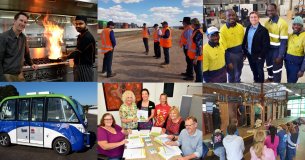 Latest News
Latest News
